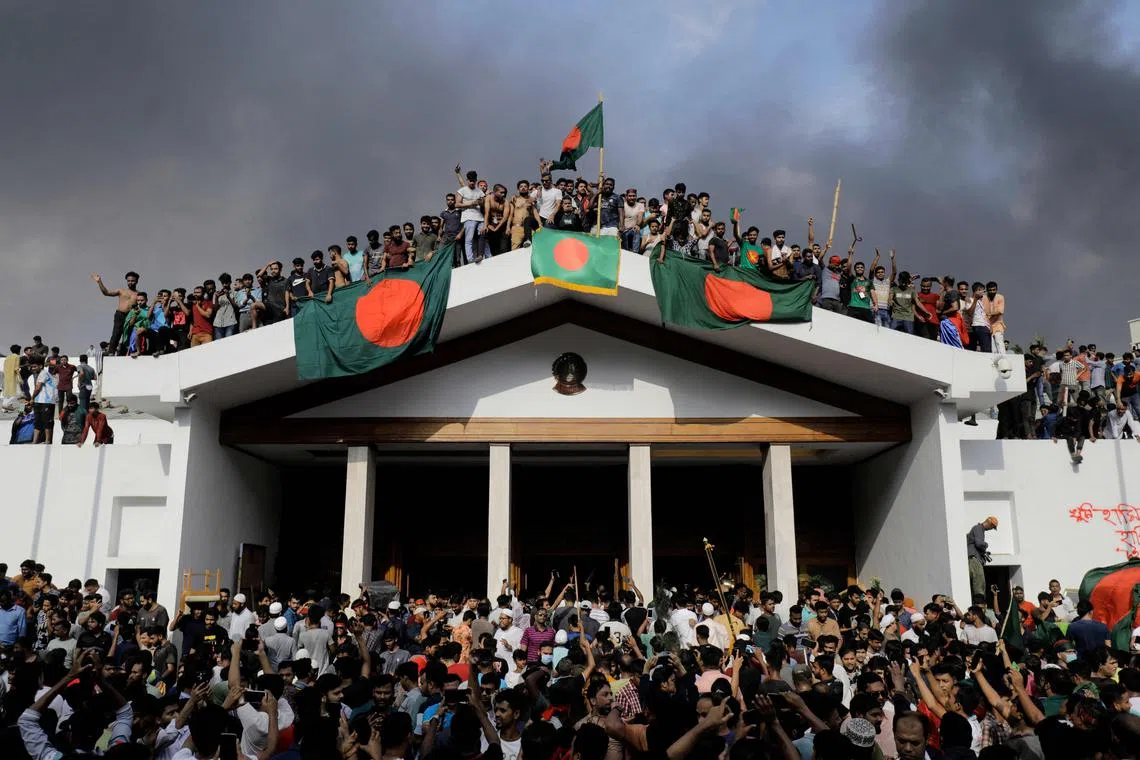Former Bangladeshi leader orchestrated mass disappearances, inquiry finds
Sign up now: Get insights on Asia's fast-moving developments

Anti-government protesters displaying Bangladesh’s national flag as they stormed Prime Minister Sheikh Hasina’s palace in Dhaka on Aug 5.
PHOTO: AFP
DHAKA – Bangladesh’s ousted Prime Minister Sheikh Hasina and senior officials orchestrated a centralised programme of enforced disappearances with thousands of likely victims, said a commission set up by the country’s interim government in a preliminary report.
The full extent of the practice during Ms Hasina’s 15-year rule started becoming apparent after she was ousted in summer 2024
In the chaotic vacuum after her fall, families of the disappeared camped outside government offices and military barracks seeking news of their loved ones. Victims who had spent years in underground cells without seeing daylight came out to share their stories, including in detailed accounts in The New York Times.
Members of the commission, led by retired judge Mainul Islam Chowdhury, said they had received more than 1,600 reports of enforced disappearances since they began their work in late August, but they estimated the actual number of victims – mostly political opponents and dissenting voices – at two or three times that.
The report said that the practice had a “central command structure” and “was systematically designed over 15 years to remain undetectable”. It operated in a top-down manner, implicating Ms Hasina and her closest lieutenants, most of whom have fled the country.
The commission identified at least eight secret facilities where detainees had been held, and relayed accounts of what it described as institutionalised torture.
A preliminary report presented on Dec 14 to Dr Muhammad Yunus, the Nobel Peace Prize laureate who is Bangladesh’s interim leader, called for the disbanding of the Rapid Action Battalion, which had started as a counter-terrorism force with US and British training but became notorious for widespread abuses.
Leaders of Ms Hasina’s party rejected the commission’s findings as politically motivated, saying it was an effort to tarnish her strong record of combating terrorism.
The report, a shortened version of which was shared with journalists by Mr Yunus’ office, said the disappearances were the work of several units across various security forces who often worked in a coordinated manner, moving victims from one facility to another to maintain deniability.
It described how targets would be tracked through phone surveillance, abducted by security forces often in plain clothes, and held in secret facilities where torture was “not only systemic but also institutionalised”. NYTIMES


